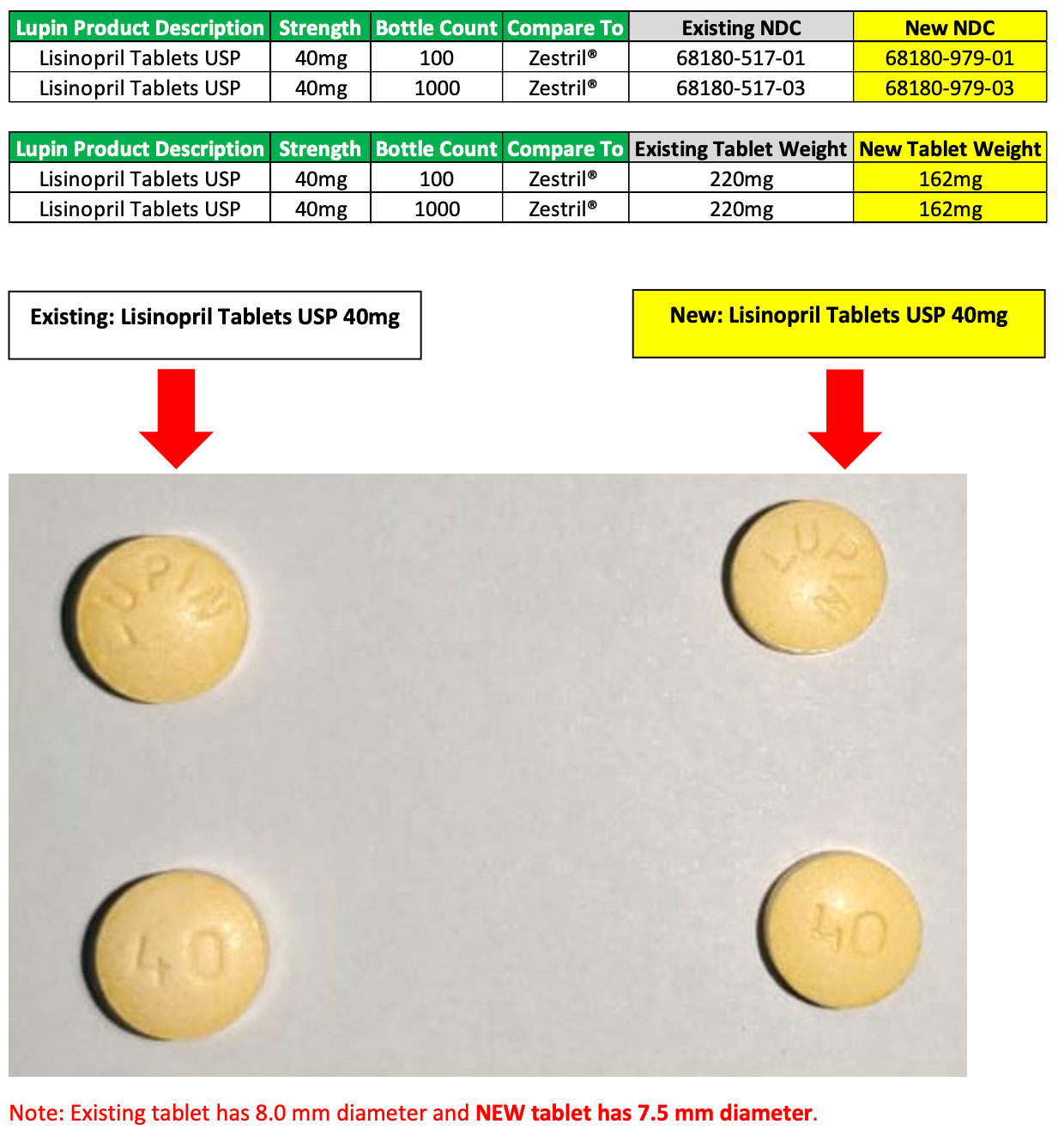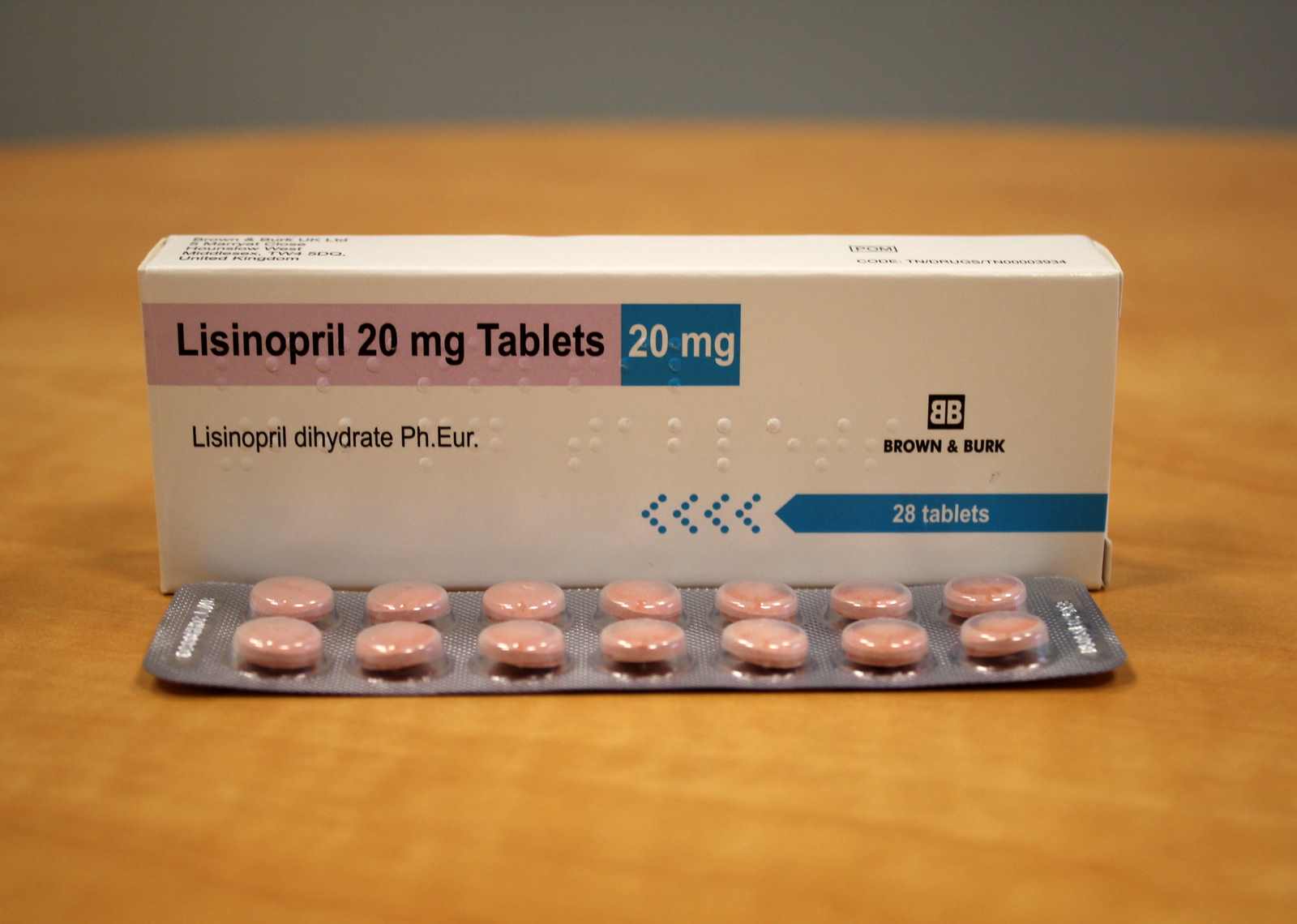Lisinopril Drug Interactions: A Comprehensive Guide To Safe Medication Use
Lisinopril is a widely prescribed medication used to treat high blood pressure, heart failure, and other cardiovascular conditions. However, like many medications, it can interact with other drugs, supplements, and even certain foods. Understanding these interactions is crucial for ensuring the safe and effective use of lisinopril. In this article, we will delve into the various drug interactions associated with lisinopril, providing you with expert advice and actionable insights to manage your health effectively.
Lisinopril belongs to a class of medications known as ACE inhibitors (angiotensin-converting enzyme inhibitors). It works by relaxing blood vessels, allowing blood to flow more easily and reducing the workload on the heart. While it is highly effective, its interactions with other substances can lead to adverse effects or reduce its efficacy. This makes it essential for patients and healthcare providers to be aware of potential interactions.
Whether you are currently taking lisinopril or considering it as part of your treatment plan, this guide will equip you with the knowledge you need to make informed decisions. We will explore common drug interactions, their implications, and how to mitigate risks, ensuring your treatment remains safe and effective.
Read also:Everything You Need To Know About Amazon Prime Streaming Service
- What is Lisinopril?
- Common Drug Interactions with Lisinopril
- Serious Interactions to Watch Out For
- Food and Supplement Interactions
- How to Manage Lisinopril Interactions
- The Importance of Consulting Your Doctor
- Potential Side Effects of Lisinopril Interactions
- Statistics and Studies on Lisinopril Interactions
- Frequently Asked Questions
- Conclusion
What is Lisinopril?
Lisinopril is a prescription medication primarily used to treat hypertension (high blood pressure), heart failure, and to improve survival rates after a heart attack. As an ACE inhibitor, it works by blocking the enzyme responsible for narrowing blood vessels, thereby lowering blood pressure and improving blood flow.
How Does Lisinopril Work?
Lisinopril inhibits the angiotensin-converting enzyme, which is responsible for converting angiotensin I into angiotensin II. Angiotensin II is a hormone that causes blood vessels to constrict, increasing blood pressure. By blocking this enzyme, lisinopril helps relax and widen blood vessels, reducing blood pressure and easing the strain on the heart.
Conditions Treated with Lisinopril
- Hypertension (high blood pressure)
- Heart failure
- Post-heart attack recovery
- Diabetic nephropathy (kidney damage in people with diabetes)
Common Drug Interactions with Lisinopril
While lisinopril is generally safe, it can interact with several medications, potentially causing adverse effects. Below, we outline some of the most common drug interactions associated with lisinopril.
Diuretics (Water Pills)
Diuretics, such as furosemide or hydrochlorothiazide, are often prescribed alongside lisinopril to manage high blood pressure. However, combining these medications can increase the risk of low blood pressure (hypotension) and electrolyte imbalances, particularly low potassium levels (hypokalemia).
Nonsteroidal Anti-Inflammatory Drugs (NSAIDs)
NSAIDs like ibuprofen and naproxen can reduce the effectiveness of lisinopril by interfering with its blood pressure-lowering effects. Additionally, this combination may increase the risk of kidney damage, especially in individuals with pre-existing kidney conditions.
Potassium Supplements and Potassium-Sparing Diuretics
Lisinopril can increase potassium levels in the blood. When combined with potassium supplements or potassium-sparing diuretics like spironolactone, the risk of hyperkalemia (high potassium levels) rises. This condition can lead to dangerous heart rhythm abnormalities.
Read also:Alexis Rhobh A Deep Dive Into Her Life Career And Influence
Serious Interactions to Watch Out For
Some interactions with lisinopril can be life-threatening and require immediate medical attention. Understanding these risks is critical for patient safety.
Lithium
Lisinopril can increase the levels of lithium in the blood, a medication commonly used to treat bipolar disorder. Elevated lithium levels can lead to lithium toxicity, which may cause symptoms such as nausea, vomiting, diarrhea, tremors, and confusion.
Aliskiren
Aliskiren, another medication used to treat high blood pressure, should not be taken with lisinopril, especially in patients with diabetes or kidney disease. This combination significantly increases the risk of kidney damage, high potassium levels, and low blood pressure.
Food and Supplement Interactions
Beyond medications, certain foods and supplements can also interact with lisinopril, affecting its efficacy or causing adverse effects.
High-Potassium Foods
Consuming excessive amounts of potassium-rich foods, such as bananas, oranges, spinach, and potatoes, can exacerbate the risk of hyperkalemia when taking lisinopril. Patients are advised to monitor their potassium intake and consult their healthcare provider for dietary recommendations.
Herbal Supplements
Herbal supplements like licorice root can interact with lisinopril, potentially reducing its effectiveness or increasing the risk of side effects. Always inform your doctor about any supplements you are taking to avoid complications.
How to Manage Lisinopril Interactions
Managing lisinopril interactions requires proactive communication with your healthcare provider and adherence to their recommendations.
Regular Monitoring
Patients taking lisinopril should undergo regular blood tests to monitor kidney function, potassium levels, and blood pressure. This helps detect potential issues early and allows for timely adjustments to the treatment plan.
Medication Review
Before starting lisinopril, inform your doctor about all medications, supplements, and over-the-counter drugs you are taking. This enables them to identify potential interactions and adjust dosages or recommend alternatives as needed.
The Importance of Consulting Your Doctor
Consulting your doctor is essential when taking lisinopril, especially if you are on multiple medications. Your healthcare provider can assess your individual risk factors and tailor your treatment plan to minimize interactions.
Questions to Ask Your Doctor
- Are there any medications I should avoid while taking lisinopril?
- How often should I have my potassium levels and kidney function checked?
- What are the signs of a serious interaction, and when should I seek medical attention?
Potential Side Effects of Lisinopril Interactions
Drug interactions involving lisinopril can lead to a range of side effects, some of which may require immediate medical attention.
Common Side Effects
- Dizziness or lightheadedness
- Fatigue
- Cough
Serious Side Effects
- Swelling of the face, lips, or throat (angioedema)
- Severe allergic reactions
- Kidney damage or failure
Statistics and Studies on Lisinopril Interactions
Research and clinical studies have highlighted the prevalence and risks of lisinopril interactions. For example, a study published in the *Journal of Clinical Hypertension* found that nearly 30% of patients taking lisinopril experienced at least one drug interaction, underscoring the importance of vigilant monitoring.
Frequently Asked Questions
Can I take lisinopril with over-the-counter medications?
While some over-the-counter medications are safe to take with lisinopril, others, such as NSAIDs, can cause interactions. Always consult your doctor or pharmacist before combining lisinopril with any new medication.
What should I do if I experience side effects?
If you experience mild side effects, contact your healthcare provider for guidance. For severe symptoms, such as difficulty breathing or swelling, seek emergency medical attention immediately.
Conclusion
Lisinopril is a highly effective medication for managing high blood pressure and related conditions, but its interactions with other drugs, foods, and supplements can pose risks. By understanding these interactions and taking proactive steps to manage them, you can ensure the safe and effective use of lisinopril. Always consult your healthcare provider for personalized advice and report any unusual symptoms promptly.
We hope this guide has provided you with valuable insights into lisinopril drug interactions. If you found this article helpful, please share it with others who may benefit. Additionally, feel free to leave a comment or explore more articles on our site for further information on medication safety.
Olivia Pacino: A Rising Star In The Entertainment Industry
Mr. Burns: The Iconic Villain Of The Simpsons
60s Actor: Exploring The Golden Era Of Hollywood Legends

Important Notice Lisinopril 40mg Lupin Pharmaceuticals, Inc.

Lisinopril Brown & Burk UK